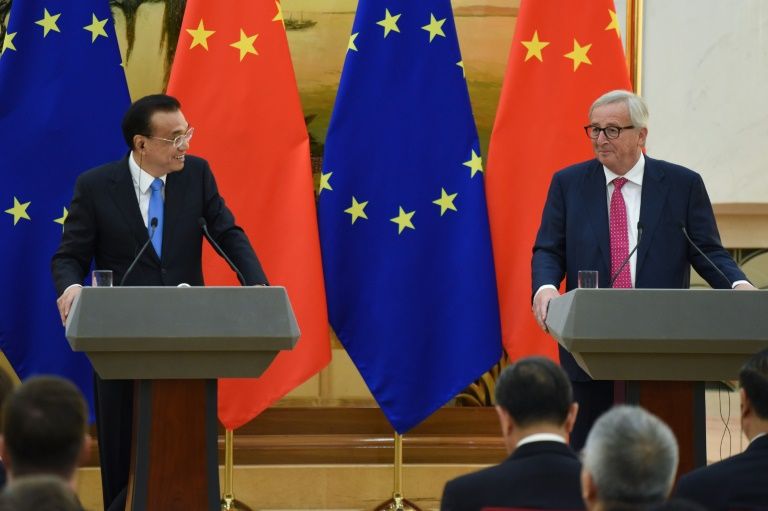EU business group laments China's 'reform deficit'

Foreign companies cannot compete on a level playing field in China because the world's second-largest economy is stuck in a "reform deficit", a European business group said Tuesday.
Despite four decades of booming growth, Beijing has fallen behind on pledges to implement reforms and liberalise its economy, the EU Chamber of Commerce in China wrote in its annual report.
The comments come as China-US trade tensions fray, with Donald Trump on Monday announcing new tariffs on $200 billion in Chinese goods that will take effect next week.
"The root cause of the US-China trade war is China's incomplete market opening," said Mats Harborn, president of the EU Chamber.
"Reducing the reform deficit should also help with reducing tensions in the ongoing trade war," he added.
The 394-page position paper details the problems EU firms face in China, and represents the voices of 1,600 European companies, including big names such as Siemens, Volkswagen and Airbus.
The chamber said it received "a clear no" when it asked members whether international companies compete on a level playing field in China.
European firms face myriad issues in China, the report said, including preferential treatment for monopolistic state-owned companies, market access barriers and government red tape, as well as intellectual property protection and forced technology transfer.
"China's old economic order is still lingering in society," Harborn said, noting the Communist Party's determination to make state-owned enterprises "stronger bigger and better" was actually detrimental to the development of China's economy.
The roped-off Chinese internet was also identified as a headache by more than half of businesses, according to the chamber's survey.
As Washington shows signs of ironing out trade frictions with Brussels, Beijing is increasingly worried its top two trade partners could gang up on it.
Harborn called Trump's tariff campaign "economic madness" and said "we will not pressure China into increasing its reform and opening".
But European companies and officials share many of the same concerns as Washington, and Harborn said "we are also very frustrated by the lack of progress we see".
Beijing had pledged that 2018 -- the 40th anniversary of former leader Deng Xiaoping's reform and opening policies that jump-started China's economic miracle -- would be a big year for further changes.
But the tensions created by China's attempts to use market mechanisms in a state-led economy remain unresolved, despite the Communist Party emphasising five years ago "the decisive role of the market in allocating resources", the chamber's report said.
A number of sectors remain "heavily dominated" by state-owned firms, suppressing the possibility for competition, according to the report.
The chamber said China has made some positive changes this year, like opening up financial and manufacturing fields and lowering tariffs, but said they were not enough.
It is "more than the pessimists thought but less than the optimists hoped for", said Jacob Gunter, policy coordinator for the chamber.
